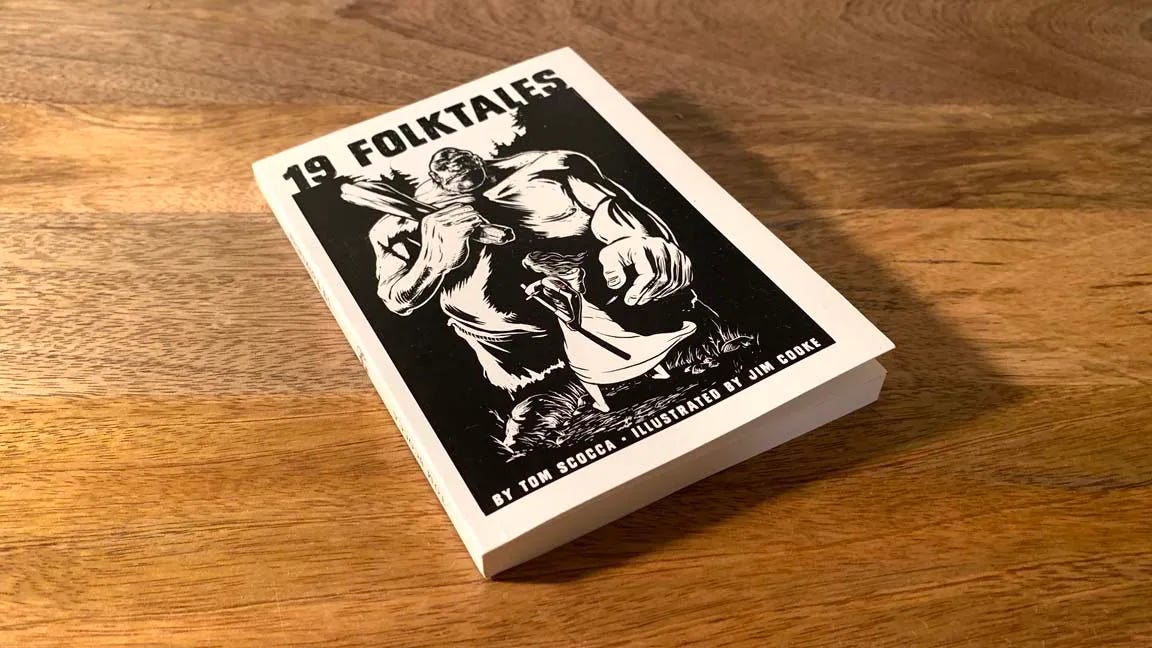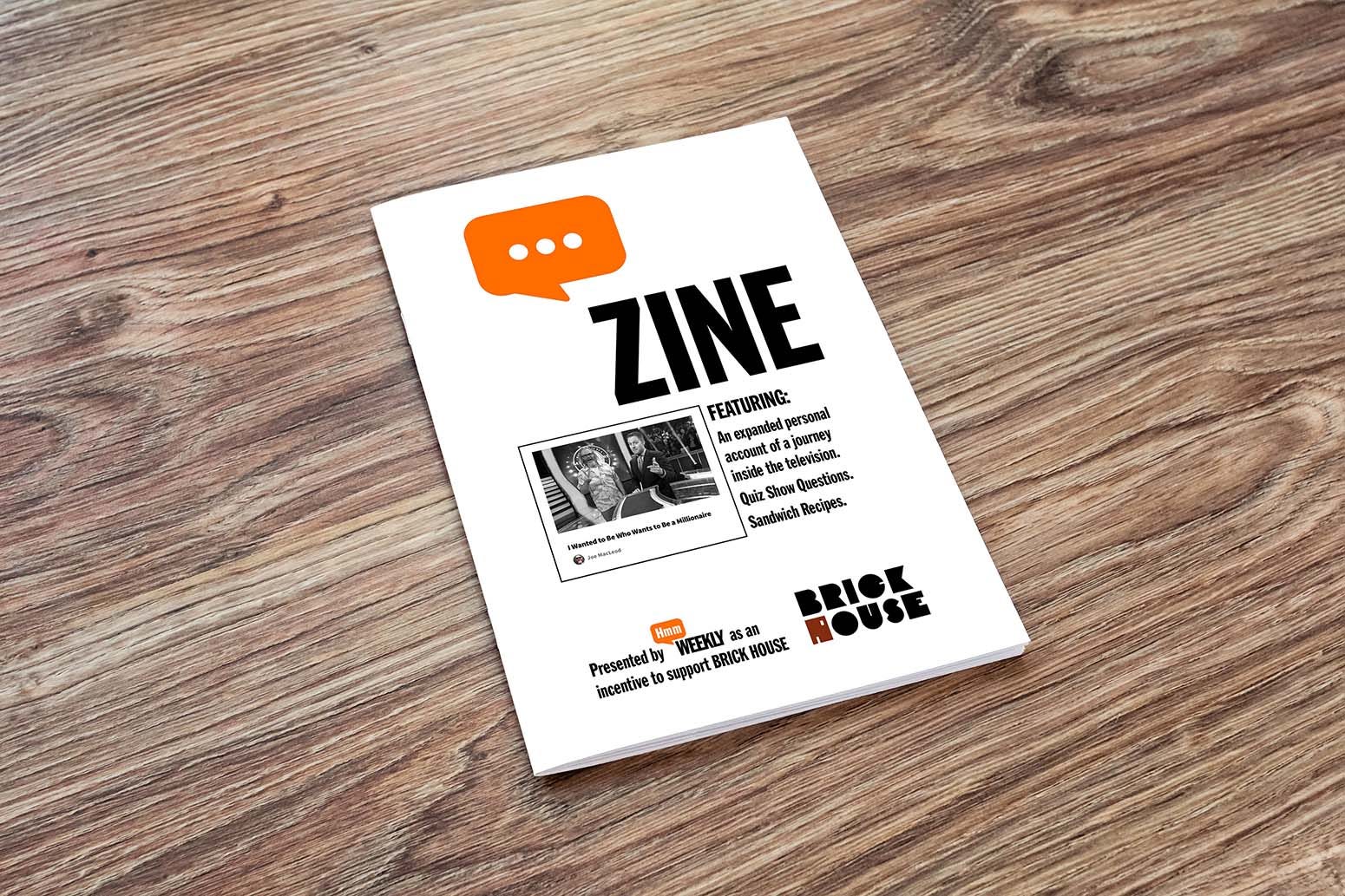THE WORST THING WE READ™: Send in the truth
Indignity Vol. 3, No. 197

THE WORST THING WE READ™
James Bennet Needs an Editor
THERE IS A new generation of journalists at work, James Bennet warned in the Economist last week, who "do not believe readers can be trusted with potentially dangerous ideas or facts." This cohort, Bennet wrote, has turned away from traditional journalistic values; rather than "pursuing truth," its practitioners want to "achieve social justice."
Bennet, the former New York Times opinion editor, had his own sense of justice, or of injustice, in mind. He was writing about these putatively bad journalists—under the headline "When the New York Times lost its way"—to defend his own self-image as a good and proper journalist, three and a half years after he was forced out of his job by Times publisher Arthur Gregg Sulzberger, following a Times staff revolt against an op-ed Bennet's section had published by Sen. Tom Cotton that called for military action against protesters.
Bennet has been trying to publicly relitigate the case of Cotton's “Send in the Troops” op-ed for more than a year now, since he shared his thoughts about it with Semafor's Ben Smith in October 2022. This latest attempt ran some 16,000 or 17,000 words—different people came up with different counts, and I didn't feel like running my own—and didn't introduce anything especially new or persuasive on the subject. Bennet remains furious that in the Times' description of the controversy in its news pages, “the first sentence reported that Cotton had called for ‘the military to suppress protests against police violence,’” even though the op-ed had specified that the military should target “lawbreakers”—a bit of pettifoggery meant to obscure both Cotton's previously stated position on putting down the protests and the realities of the existing police violence against the protesters.
This has all been covered before, including in this newsletter, and Bennet still shows no interest in listening to what anyone who disagrees with him says. His Economist piece recounted how he brought his objections to the Times yet again, upon which the paper
supplied an opinion from a Times lawyer which noted that Cotton called for a military presence to “deter lawbreakers”. The lawyer argued that because some protesters violated curfews, failed to get permits or disperse when police ordered them to, they could be considered “lawbreakers”, just like the rioters and looters Cotton explicitly referred to. I followed up, saying I was seeking an editorial rather than a legal opinion, and asking again whether the Times believed its characterisation of Cotton’s argument was not just accurate, but fair.
My own editorial judgment about the Cotton op-ed was that the minute I originally read it, without benefit of anyone else's analysis or input, I sent Bennet an email with the subject "Send in the Troops," which read, in its entirety, "Fuck you." The question was never particularly complicated.
What was new in the extra-long Economist version of Bennet's lament was his effort to fit his own downfall (a downfall into a secure job at the Economist) into a larger story about the press in general and the Times in particular. Bennet, in this account, was a humble old-fashioned truth-teller, who worked his way up from being a cub reporter for the Times to the heights of editing the Atlantic and then the Times opinion section, only to find himself on the wrong side of a cultural revolution. All around him, reporters were committed to ideology and forcing results, over the time-honored tradition of giving the public the plain facts and letting them make up their own minds.
“It is human nature to want to see your bias confirmed,” Bennet allowed, generously. Indeed it is! For instance, here is how Bennet described the Times' editorial decisions over the past few years:
The Times was slow to break it to its readers that there was less to Trump’s ties to Russia than they were hoping, and more to Hunter Biden’s laptop, that Trump might be right that covid came from a Chinese lab, that masks were not always effective against the virus, that shutting down schools for many months was a bad idea.
Bennet notoriously failed to read the Cotton op-ed before it was published. From that account of the Times suppressing uncomfortable news for liberals, it's not clear whether he ever read anything else in the paper, either—such as the November 1, 2016 headline “Investigating Trump, F.B.I. Sees No Clear Link to Russian Government,” or the banner across the entire front page on March 25, 2019, declaring (falsely, it would turn out), “MUELLER FINDS NO TRUMP-RUSSIA CONSPIRACY.” As for the Covid lab leak theory, skepticism about the value of masking, and dire warnings about the effects of school shutdowns, all of these topics were amply aired to the 17 million readers of David Leonhardt's morning Times newsletter, possibly the most influential outlet for the back-to-normal Covid faction.
Elsewhere in the piece, Bennet wrote that the Times “was slow to display much curiosity about the hard question of the proper medical protocols for trans children.” The Times' abundant-unto-obsessive contributions to the ongoing panic against trans care could only be described as reluctant in comparison to Bennet's own Atlantic, the pioneering early source of the social contagion among centrist journalists.
Again and again, Bennet resorted to bogus history about easily checkable facts. After readers got angry about a long feature profile of a man who had attended the Unite the Right rally in Charlottesville, Virginia, Bennet recounted, the Times backed away from trying to understand the people who were drawn to Donald Trump:
As a reporter in the newsroom, you’d have to have been an idiot after that explosion to attempt such a profile. Empathetic reporting about Trump supporters became even more rare. It became a cliché among influential left-wing columnists and editors that blinkered political reporters interviewed a few Trump supporters in diners and came away suckered into thinking there was something besides racism that could explain anyone’s support for the man.
The profile in question ran in November 2017, after which the Times continued to send reporters out seeking a deeper understanding of Trump supporters, and continued to embarrass itself with its credulousness toward them. Bennet's own section was so eager to challenge Times readers’ perceptions of Trump supporters, it ran a piece that tried to pass off a member of a local Republican Party executive board as a “suburban mom in Kenosha, Wis.” representing women whom “[t]he Clinton campaign aimed ads at.”
Why couldn't James Bennet, martyr to unflinching objective journalism, give an accurate account of the coverage in the newspaper where he used to work? He appeared, on the evidence in the Economist piece, to be in the grip of two different kinds of derangement. The first is a grimly familiar one, betrayed by his complaint about “influential left-wing columnists”—the complaint of a person who, never having ventured outside the center of power, has no idea of what the actual power arrangements in this world are. No left-wing columnist enjoys even a fraction of the control over the discourse that Bennet has exercised in his own professional life.
But Bennet was not describing reality, he was describing the feelings that take on the shape of reality in the sealed, airless space of middle-aged white men's group chats. This became clear when he reached outside the Times for a whole different shibboleth, a story about events at the Wall Street Journal:
After I was chased out of the Times, Journal reporters and other staff attempted a similar assault on their opinion department. Some 280 of them signed a letter listing pieces they found offensive and demanding changes in how their opinion colleagues approached their work. “Their anxieties aren’t our responsibility,” shrugged the Journal’s editorial board in a note to readers after the letter was leaked. “The signers report to the news editors or other parts of the business.” The editorial added, in case anyone missed the point, “We are not the New York Times.” That was the end of it.
This may have been a story about the defense of an opinion desk's prerogatives, but it was hardly a ringing defense of the pursuit of the truth. The protest letter at the Journal came from newsroom reporters who argued that the opinion side's “lack of fact-checking and transparency, and its apparent disregard for evidence, undermine our readers’ trust and our ability to gain credibility with sources.” Its targets were the inveterate liars of the Journal's opinion page, who had, among other things, kept publishing a contributor who had “falsely claimed in a tweet that one of our Middle East-based reporters had friends in the Muslim Brotherhood.”
As the Times reported in covering the dispute:
The letter cited several examples of essays published by the opinion section, which is operated separately from the newsroom, that included factual errors, among them a June 16 article by Vice President Mike Pence. The essay, with the headline “There Isn’t a Coronavirus ‘Second Wave,’” was ultimately corrected. The letter highlighted how the newsroom’s own reporting more than a week earlier was at odds with Mr. Pence’s claims.
The second derangement in the piece was a sadder and more subtle one. From his opening sentence, Bennet offered, as his ally and fellow voice of reason at the Times, the former executive editor Dean Baquet:
"Are we truly so precious?” Dean Baquet, the executive editor of the New York Times, asked me one Wednesday evening in June 2020. I was the editorial-page editor of the Times, and we had just published an op-ed by Tom Cotton, a senator from Arkansas, that was outraging many members of the Times staff.
Baquet, in Bennet's telling, shared his consternation about the newsroom's drift into what Bennet called “illiberal bias,” where the old journalistic values and the hierarchy that enforced them have both been overthrown by callow, over-passionate youth:
[E]ditors now tremble before their reporters and even their interns. “I miss the old climate of fear,” Baquet used to say with a smile, in another of his barbed jokes.
But Dean Baquet was in charge of the newsroom, and he stayed in charge of the newsroom through the very years that Bennet was criticizing. If the reporters had been pulled off their pursuit of Trump voters on the diner safari trail (which again, they were not), Baquet would have been the one to do the pulling. If the Times had protected the readers from negative news about the Russia investigations (which, again, it did not), Baquet would have been the one behind that choice.
Perhaps Baquet was simply too overwhelmed to act on his righteous instincts, a lone leader confronting a generation that is impossible to lead. Or could it be that Baquet, unlike his opinion-side counterpart, knew exactly what he was doing? Both editors were hired by the former Times publisher Arthur O. Sulzberger Jr., who then handed command of the company over to his son, Arthur Gregg Sulzberger. And it was Arthur Gregg Sulzberger—not some band of insubordinate child soldiers in the newsroom—who decided that Bennet had to go.
This was the power relation that Bennet seemed unable to grasp, even after spending all those thousands of words on it. Success or failure at the top of the Times has always been a question of managing the Sulzbergers. Bennet caused a crisis—two crises, if you count the episode where he exposed the paper (and by extension the entire journalism industry) to a major lawsuit by inserting inaccurate claims into a whole different editorial—and he couldn't convince his boss to trust him to get out of it.
Baquet, meanwhile, understood how to keep the publisher on his side. But Baquet was, throughout his career, a master politician of the newsroom. That's how Bennet came away believing they were on the same team—even as the clubhouse door slammed shut with one of them on the inside and the other out.

WEATHER REVIEWS

New York City, December 17, 2023
★ Daylight came up slowly and not very far, into listless gray. A downy woodpecker gave its solitary chirp over and over, augmented briefly by crows at a distance. The morning got darker and around lunch the rain showed up, in intermittent showers, just coherent enough to rule out a walk to get a Christmas tree. The younger boy's parka liner, unzipped from its shell in the tropical conditions, took up extra room on the hooks by the door. The sunset, or the formless exit of the sun, came even sooner than scheduled. The air trickling through the window, backed by the irregular pattering of the night rain, felt as if the electric fan had been left on.

EASY LISTENING DEP’T.
INDIGNITY MORNING PODCAST
Indignity Morning Podcast No. 184: Trying to change the subject.
Tom Scocca • Dec 18, 2023


BLUESKY DEPARTMENT
The Gentle Readers of Indignity have sent us more Bluesky codes, for people who want to try the still-beta Bluesky social networks. If you haven’t already gotten a code from us, email indignity@indignity.net and we will award Bluesky codes to those who respond, one per reader, first email, first served.

SANDWICH RECIPES DEP’T.
WE PRESENT INSTRUCTIONS for the assembly of select sandwiches from The Modern Cook Book and Household Recipes, revised and edited by Lily Haxworth Wallace, Lecturer on Foods, Contributor to the "National Food Magazine," Etc., Published in 1912. This book is in the Public Domain and available at archive.org for the delectation of all.
Watercress or other Salad Sandwiches
Prepare bread for sandwiches. Take watercress that has been washed and shaken dry. Dip into French salad dressing and put on bread; a little cheese, creamed, or French mustard spread over salad greens makes a palatable addition. Lettuce, nasturtium, and other salad greens may also be prepared in the above manner. The greens may be shredded or chopped, and mayonnaise dressing may be substituted for French dressing.
Nut-and-Fruit Sandwiches
Dates, nuts, figs, raisins, chopped up together or separately, spread between very thin slices of buttered white or Graham bread, and seasoned with a pinch of salt, are found to be very palatable.
Adelaide Sandwiches
Cut up cold chicken and ham in small squares, in the proportion of two-thirds of chicken to one-third of ham. Next place 2 large tablespoonfuls of sauce and 1 of curry paste in a stewpan, and when they boil add the chicken and ham, mixing all well together. Prepare thin slices of stale bread, cut in small circles, by frying them in clarified butter. Spread the prepared chicken and ham slightly between two slices of the bread. Place the sandwiches on a baking-pan; bake for five minutes in a brisk oven, sprinkling over the top of each sandwich a little grated Parmesan. Dish up on a napkin, and serve as a second-course savory dish.
The remains of fish or game may be used in the same way.
Jam Sandwiches
Mix the yolks of 2 eggs very smoothly with a tablespoonful of flour and a tablespoonful of ground rice; add a very small pinch of salt, a tablespoonful of sugar, half a pint of thick cream, and a quarter of a pint of new milk. Beat the whites of the eggs to a firm froth, add them last of all, and beat the mixture for four or five minutes. Butter 2 large plates, put in the mixture, and bake in a quick oven until it is set and lightly browned. Spread a little jam over one of the cakes and lay the other upon it, the browned part uppermost. Sift a little sugar over it before serving. Jam sandwiches may be eaten either hot or cold. Time, twenty minutes to bake.
If you decide to prepare and attempt to enjoy a sandwich inspired by this offering, be sure to send a picture to indignity@indignity.net.

Thank you for reading INDIGNITY! Please sign up for a paid subscription to support our work, or if you are already helping us, consider giving someone the gift of INDIGNITY!
MARKETING DEP'T.

The second printing of 19 FOLK TALES is now available for Holiday gift-giving and personal perusal!
U.S. Postal Service media mail delivery takes an estimated 4 to 8 business days, which means from here on out it will be a gamble against the calendar.
For adrenaline junkies and/or Eastern Orthodox shoppers, the author stands ready to hand-fulfill orders as they come in, even at the cost of dealing with that one clerk at the neighborhood post office whose whole thing is trying to start a fight with everyone who steps up to her window. Happy holidays!

HMM WEEKLY MINI-ZINE, Subject: GAME SHOW, Joe MacLeod’s account of his Total Experience of a Journey Into Television, expanded from the original published account found here at Hmm Daily. The special MINI ZINE features other viewpoints related to an appearance on, at, and inside the teevee game show Who Wants to Be A Millionaire, available for purchase at SHOPULA.
Thanks for reading INDIGNITY, a general-interest publication for a discerning and self-selected audience. We depend on your support!






